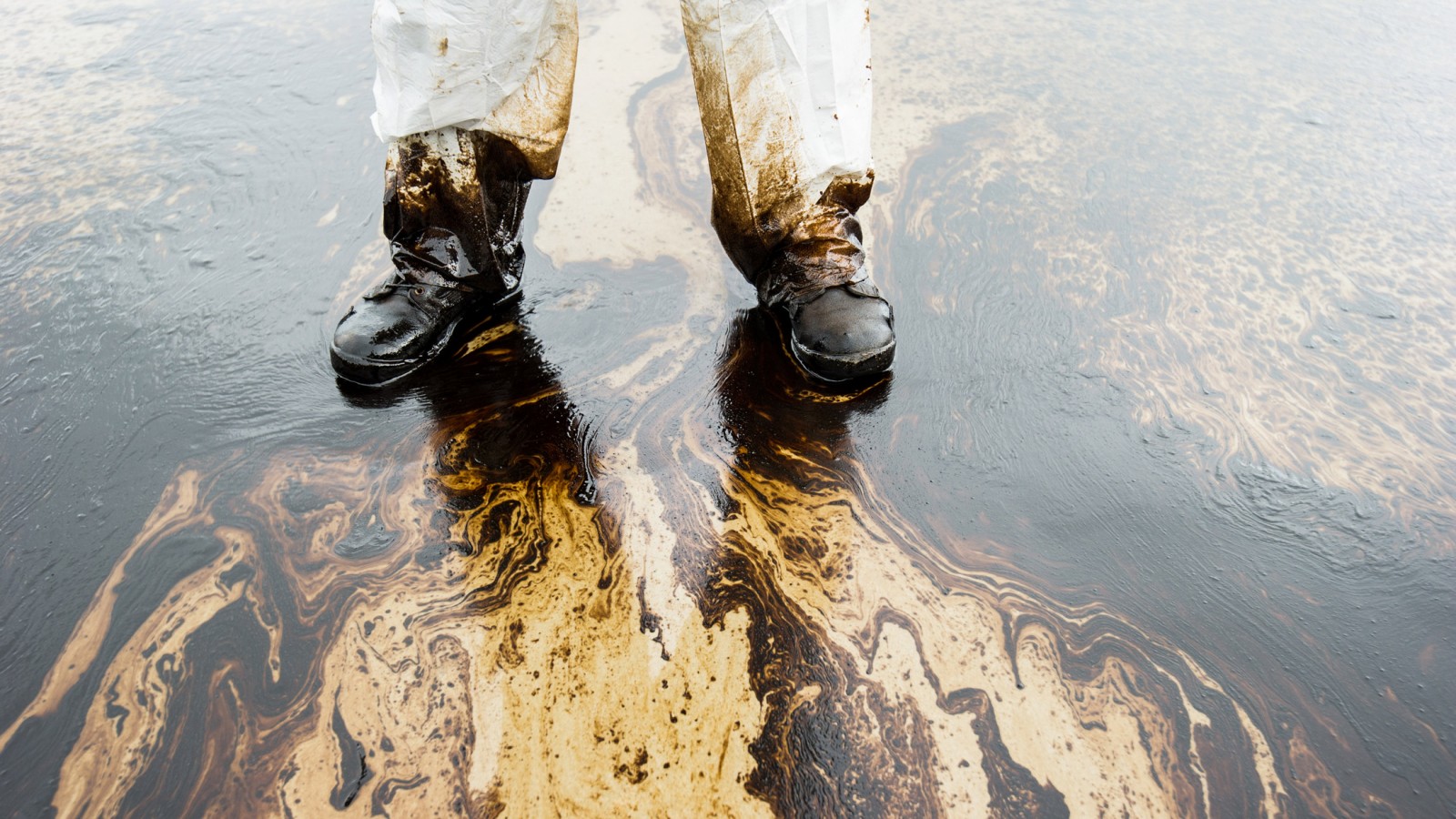Crude oil is just pouring out of America’s freight trains, more than 1.15 million gallons of it in 2013. According to a McClatchy analysis of data from the Pipeline and Hazardous Materials Safety Administration, “More crude oil was spilled in U.S. rail incidents last year than was spilled in the nearly four decades since the federal government began collecting data on such spills.”
Why is so much oil spilling? Because there’s now so much more oil drilling, thanks in large part to the fracking boom in North Dakota.
Climate change has become the main environmental reason that we worry about oil and coal, but before we even knew about climate change, we knew that filling a river with oil could kill everything in it.
And an oil spill on land can kill people if it results in an explosion or fire near a population center. The U.S. data doesn’t include oil spills in Canada, but our neighbor to the north had an especially bad year for oil spills as well. An estimated 1.5 million gallons of crude oil from North Dakota spilled in just one train derailment in Lac-Mégantic, Quebec, on July 6. That accident triggered an explosion that killed 47 people.
That was followed by more major derailments and explosions in the U.S. involving North Dakota crude, such as the Nov. 8 spill of nearly 750,000 gallons of oil after a train went off the rails near Aliceville, Ala.
It’s not necessarily a coincidence that these accidents are increasingly resulting in explosions. It may be the result of a higher natural flammability in the oil from North Dakota’s Bakken shale. The oil may also be more combustible because it contains some of the chemicals used in the fracking process.
As with every other problem caused by fossil fuels, we should address this by putting an appropriate price on consumption — in this case, a much higher gasoline tax would do the trick — so that oil companies can’t stick us all with the bill for the health, safety, and environmental problems caused by their dangerous product. Stronger and safer rail cars would help too, but the federal government has said new rail-car regulations won’t go into effect for at least a year.



